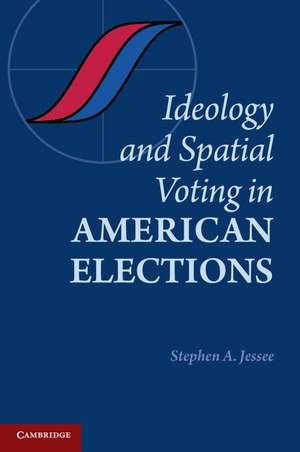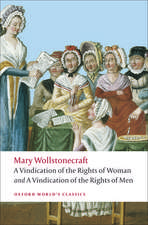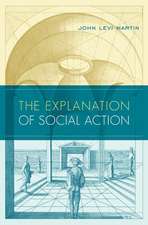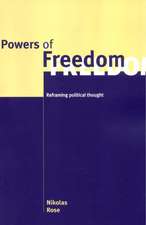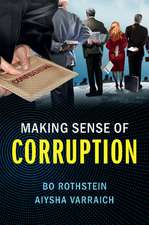Ideology and Spatial Voting in American Elections
Autor Stephen A. Jesseeen Limba Engleză Paperback – 28 iun 2012
Preț: 221.34 lei
Nou
Puncte Express: 332
Preț estimativ în valută:
42.36€ • 45.100$ • 35.58£
42.36€ • 45.100$ • 35.58£
Carte tipărită la comandă
Livrare economică 22 aprilie-06 mai
Preluare comenzi: 021 569.72.76
Specificații
ISBN-13: 9781107638389
ISBN-10: 1107638380
Pagini: 256
Ilustrații: 43 b/w illus. 37 tables
Dimensiuni: 152 x 228 x 13 mm
Greutate: 0.34 kg
Ediția:New.
Editura: Cambridge University Press
Colecția Cambridge University Press
Locul publicării:New York, United States
ISBN-10: 1107638380
Pagini: 256
Ilustrații: 43 b/w illus. 37 tables
Dimensiuni: 152 x 228 x 13 mm
Greutate: 0.34 kg
Ediția:New.
Editura: Cambridge University Press
Colecția Cambridge University Press
Locul publicării:New York, United States
Cuprins
1. Introduction; 2. Ideology; 3. Measuring ideology; 4. Linking theory and empirics: testing spatial voting theory; 5. Partisanship vs. proximity; 6. Political information and vote choice; 7. The political perceptions of citizens; 8. Conclusion.
Recenzii
'In Ideology and Spatial Voting in American Elections, Professor Stephen Jessee develops an innovative approach to compare the ideologies of rank-and-file voters and presidential candidates, and proceeds to address several important questions, including: to what extent do rank-and-file voters display attitude constraint in their opinions across differing policy domains, and can their opinions across these different domains be represented by a position along a unidimensional ideological continuum? How does the distribution of citizens' ideological positions match up with the presidential candidates' ideological positions? How do citizens' ideological positions and their partisanship influence their vote choices, and does the answer to this question depend on the citizen's level of political information? Professor Jessee presents provocative and nonobvious answers to these questions that greatly enhance our understanding of public opinion, political behavior, and mass-elite policy linkages.' James Adams, University of California, Davis
'Ideology and Spatial Voting in American Elections advances two provocative claims. The first is that the policy preferences of ordinary citizens are structured ideologically; the second, that most voters rely on ideological predispositions to guide their electoral choices. Employing a combination of rigorous formal modeling, sophisticated statistical methods, and taut prose, Jessee makes a compelling case for these propositions. What makes this volume especially appealing is that it deftly incorporates insights from the spatial modeling and political behavior fields to build a theory of voter decision making that surpasses prior efforts in both areas. This book will quickly become a 'must cite' for scholars working in the fields of spatial theory, political behavior, public opinion, campaigns and elections, and citizen competence.' Paul Goren, University of Minnesota
'Ideology and Spatial Voting in American Elections advances two provocative claims. The first is that the policy preferences of ordinary citizens are structured ideologically; the second, that most voters rely on ideological predispositions to guide their electoral choices. Employing a combination of rigorous formal modeling, sophisticated statistical methods, and taut prose, Jessee makes a compelling case for these propositions. What makes this volume especially appealing is that it deftly incorporates insights from the spatial modeling and political behavior fields to build a theory of voter decision making that surpasses prior efforts in both areas. This book will quickly become a 'must cite' for scholars working in the fields of spatial theory, political behavior, public opinion, campaigns and elections, and citizen competence.' Paul Goren, University of Minnesota
Notă biografică
Descriere
Testing assumptions and implications of spatial voting theory, this book connects theory with empirical analysis of voter preferences and behavior.
